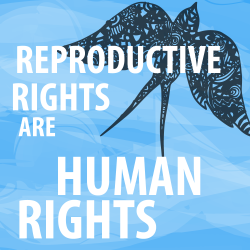 Every journey starts with one step. In 1972, the U.S. Supreme Court dismissed a case brought by a same-sex couple, challenging Wisconsin’s refusal to issue them a marriage license. For the next three years, other couples brought similar lawsuits seeking the freedom to marry, and all of them failed. It was not until 1993, almost 20 years later, that momentum for marriage equality began to build. Throughout the years it took repeated attempts by resolute individuals and couples to stand up for what their civil rights, and on June 26, 2015, marriage equality was finally achieved across the nation.
Every journey starts with one step. In 1972, the U.S. Supreme Court dismissed a case brought by a same-sex couple, challenging Wisconsin’s refusal to issue them a marriage license. For the next three years, other couples brought similar lawsuits seeking the freedom to marry, and all of them failed. It was not until 1993, almost 20 years later, that momentum for marriage equality began to build. Throughout the years it took repeated attempts by resolute individuals and couples to stand up for what their civil rights, and on June 26, 2015, marriage equality was finally achieved across the nation.
Every journey starts with one step—unfortunately for women’s reproductive rights, this old adage has seemingly been turned on its head. Since 1973, when the U.S. Supreme Court upheld a woman’s right to choose an abortion in the landmark case of Roe v. Wade, Congress and state lawmakers have tried to strip away our ability to have the full range of reproductive health services.
For more than 40 years, policymakers at all levels of government have worked tirelessly to roll back Roe and deny all women the right to choose. It began with the Hyde Amendment of 1976. Hyde is a legislative provision barring the use of certain federal funds to pay for an abortion. The effect of Hyde on the ability of low income women and women of color to access the full range of reproductive health services is devastating. Every year since 1976, Congress has banned federal Medicaid fund from paying for abortion services, resulting in the denial of any access to abortion for countless women who cannot afford to pay for this constitutionally protected care. And while there are limited exemptions under Medicaid for pregnancies caused by rape and incest, these are not easily accessed by the great majority of women who need them, and they impose an arbitrary restriction on what is, should and must be a universally protected right. To ensure that the fundamental freedom recognized in Roe v. Wade has meaning, reproductive rights must be available to all without exception.
Today, Representatives Barbara Lee (D-CA), Jan Schakowsky (D-IL), and Louise Slaughter (D-NY) and more than 70 members of Congress, introduced the Equal Access to Abortion Coverage in Health Care (EACH Woman) Act. The EACH Woman Act ensures health coverage for abortion for every woman in the U.S. regardless of income and insurance coverage.
The EACH Woman Act is the first step toward getting universal reproductive rights back in the hands of women. The Act makes a long-needed change for women and their families by creating two important standards for reproductive health. First, it respects that every woman should be able to make her own decisions about pregnancy. If a woman get her care or insurance through the federal government, she will be covered for all pregnancy-related care, including abortion. Second, the Act prohibits political interference with decision of private health insurance companies to offer coverage for abortion care. Federal, state, and local legislators will not be able to interfere with the private insurance market to prevent insurance companies from providing abortion coverage.
As part of the LGBTQ community, we at NCLR understand years of stigmatization and the denial of women’s rights to have control over their relationships and their bodies. From our founding in 1977, this became an imperative for us – to change that which seemed unchangeable.
Today, we are proud to walk in stride with those who refuse to accept the status quo, in which the universal right to reproductive freedom has become available only to a privileged few, and who have launched a bold new chapter in the fight for health care and reproductive freedom for all.
